Shiya Luo
Customizing Synthetic Data for Data-Free Student Learning
Jul 10, 2023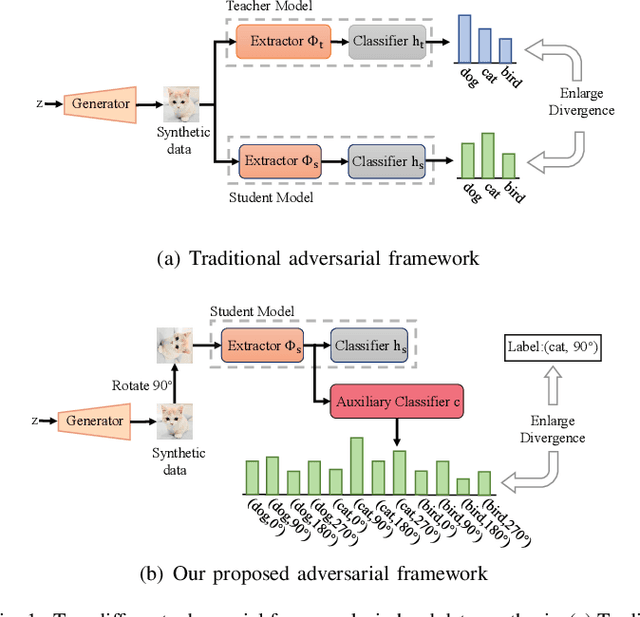
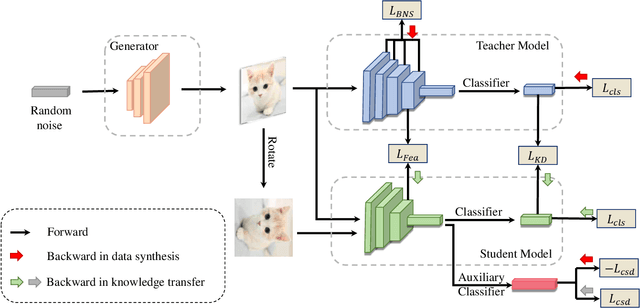
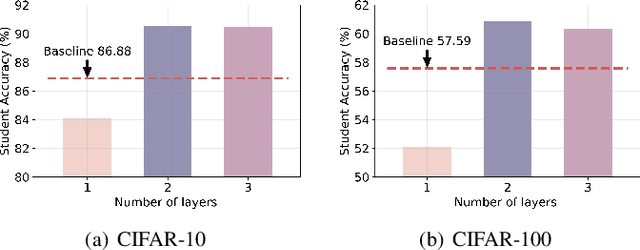

Abstract:Data-free knowledge distillation (DFKD) aims to obtain a lightweight student model without original training data. Existing works generally synthesize data from the pre-trained teacher model to replace the original training data for student learning. To more effectively train the student model, the synthetic data shall be customized to the current student learning ability. However, this is ignored in the existing DFKD methods and thus negatively affects the student training. To address this issue, we propose Customizing Synthetic Data for Data-Free Student Learning (CSD) in this paper, which achieves adaptive data synthesis using a self-supervised augmented auxiliary task to estimate the student learning ability. Specifically, data synthesis is dynamically adjusted to enlarge the cross entropy between the labels and the predictions from the self-supervised augmented task, thus generating hard samples for the student model. The experiments on various datasets and teacher-student models show the effectiveness of our proposed method. Code is available at: $\href{https://github.com/luoshiya/CSD}{https://github.com/luoshiya/CSD}$
Deeply-Supervised Knowledge Distillation
Feb 16, 2022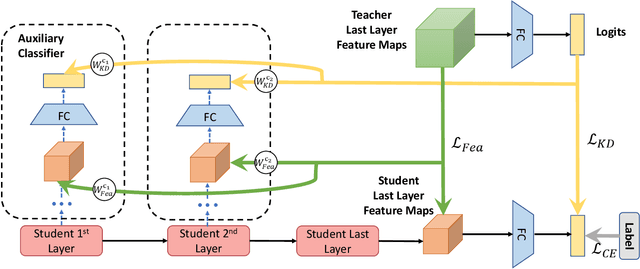
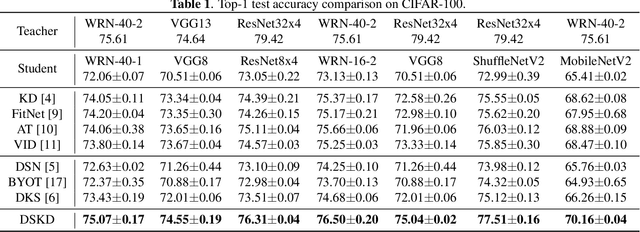

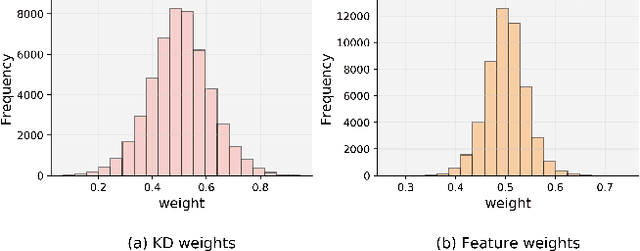
Abstract:Knowledge distillation aims to enhance the performance of a lightweight student model by exploiting the knowledge from a pre-trained cumbersome teacher model. However, in the traditional knowledge distillation, teacher predictions are only used to provide the supervisory signal for the last layer of the student model, which may result in those shallow student layers lacking accurate training guidance in the layer-by-layer back propagation and thus hinders effective knowledge transfer. To address this issue, we propose Deeply-Supervised Knowledge Distillation (DSKD), which fully utilizes class predictions and feature maps of the teacher model to supervise the training of shallow student layers. A loss-based weight allocation strategy is developed in DSKD to adaptively balance the learning process of each shallow layer, so as to further improve the student performance. Extensive experiments show that the performance of DSKD consistently exceeds state-of-the-art methods on various teacher-student models, confirming the effectiveness of our proposed method.
 Add to Chrome
Add to Chrome Add to Firefox
Add to Firefox Add to Edge
Add to Edge